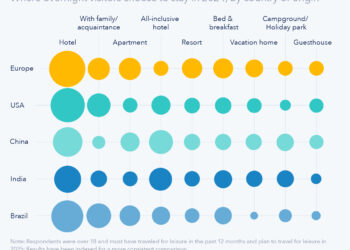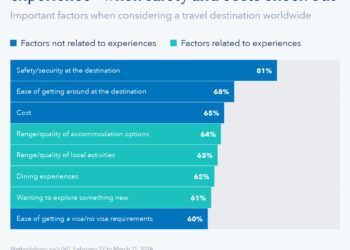Select Language:
The Evolution of Economic Value: From Goods to Experiences
The transformation of economies over time reflects a profound shift in the way value is perceived and delivered. This evolution is eloquently captured in the concept of the experience economy, a term popularized by the Harvard Business Review in its seminal article "Welcome to the Experience Economy." Understanding this transition from commodities to experiences provides valuable insights into current market trends and consumer expectations.
The Four Stages of Economic Development
The journey of economic development can be broken down into four key stages:
-
Extracting Commodities:
- The initial phase involves the extraction of natural resources, such as minerals and agricultural products. At this stage, the primary focus is on raw materials, which are characterized by their utility and basic functionality. The value derived here is generally uniform, with little personalization involved.
-
Manufacturing Goods:
ADVERTISEMENT- Next, the focus shifts to manufacturing, where raw materials are transformed into tangible products. This phase introduced elements of design and branding, allowing for greater differentiation among products. However, the value is still largely centered around physical attributes rather than customer experience.
-
Delivering Services:
- As economies mature, the service industry begins to flourish. This stage emphasizes interactions and personalized relationships, facilitating enhanced customer engagement. While service delivery adds layers of value, it often falls short of fully tapping into emotional connections.
- Staging Experiences:
- The final phase is where we currently find ourselves: the experience economy. In this realm, businesses actively curate experiences that resonate personally with consumers, leading to emotional engagement and lasting memories. This transformation signifies a shift from simply providing products and services to crafting immersive encounters that elicit feelings and connections.
Tourism: A Pioneering Sector in the Experience Economy
Tourism exemplifies the principles of the experience economy to perfection. Unlike other industries that have had to adapt to this evolving landscape, tourism was inherently designed for experiential consumption. The roots of leisure travel lie not in utility but in the pursuit of enjoyment and inspiration.
The Essence of Experience in Travel
The unique appeal of tourism is that its core offering lies in the experience itself:
-
Feelings Over Destination: While a destination may be fixed—say a breathtaking beach or a historic city—the value tourists derive is intrinsically linked to how these places make them feel. The memories created, the people met, and the stories returned with contribute to the overall value of the travel experience.
- Discovery and Storytelling: Tourists are not merely seeking a place to visit but are on a quest for discovery. Each journey is an opportunity to uncover new perspectives and engage with the world in profound ways. The stories collected during these travels are often more valuable than the trip itself.
Implications for Businesses
The shift toward an experience-based economy means businesses must rethink their strategies:
-
Personalization is Key: Companies must focus on creating personalized experiences that resonate with individual consumers. By understanding customer preferences and behaviors, businesses can tailor their offerings to foster deeper connections.
-
Emotional Resonance: Crafting experiences that connect emotionally with consumers will set businesses apart. This involves not only delivering a service but also ensuring that the consumer feels valued and understood throughout their journey.
- Incorporating Storytelling: By integrating storytelling into their branding and marketing strategies, businesses can enhance the perceived value of their offerings. Sharing authentic narratives helps forge connections and fosters loyalty among consumers.
The Future of the Experience Economy
As we move forward, the importance of experiences will only grow. The ongoing digital transformation will likely play a significant role in how experiences are delivered and consumed. Virtual reality, augmented reality, and other cutting-edge technologies can enhance and diversify the experience landscape.
The tourism sector will continue to lead the way in this space, demonstrating how experiences can be intentionally designed to captivate and inspire. In this evolving landscape, businesses that prioritize experiential value will likely thrive and build lasting relationships with their audiences.
For further insights into the evolving tourism sector and economic trends, subscribing to industry newsletters can provide essential information to stay ahead of the curve.







